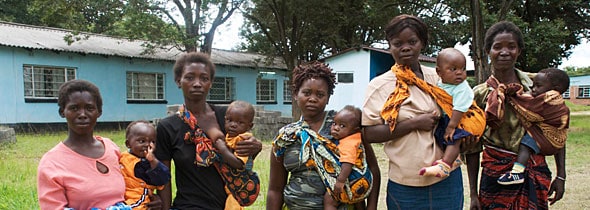
Mid-Term Evaluation of the Ongoing USAID/Zambia Integrated Systems Strengthening Project (ZISSP) (2013)
The USAID Mission to Zambia, Office of Population, Health, and Nutrition, has awarded ME&A a contract to provide a mid-term evaluation of the ongoing Zambia Integrated Systems Strengthening Project (ZISSP). ZISSP is a four and a half year, $97 million contract tasked with supporting the Zambian Ministry of Health (MOH) to strengthen skills and systems for planning, management and delivery of high-impact health services at the national, provincial and district levels. The primary objective of the project is to increase the utilization of high impact interventions in the interlinked areas of HIV/AIDS, Malaria, Family Planning (FP), Maternal Newborn and Child Health (MNCH) and Nutrition through a health systems strengthening approach. ZISSP applies a “whole systems” approach to strengthen the health system while enhancing use of quality, high-impact services. ZISSP works with communities to promote increased use of public health services. The in-country evaluation began on April 2, 2013 and ran until June 2013.
To conduct the ZISSP evaluation, ME&A assembled a team of experts including 2 internationals and 3 locals. The purpose of the evaluation was to assess ZISSP’s progress towards meeting its goals and objectives from three perspectives and make recommendations related to evaluation objectives.
The team collected data for this evaluation using numerous methods including: a critical desk review of materials related to ZISSP; two quantitative Likert-scale surveys; extensive project briefings; 110 key informant interviews with the Government of the Republic of Zambia and other stakeholder national offices; field visits to 5 provincial and 12 district health offices, health facilities, pre-service institutions and communities; and 25 focus group discussions in rural communities in ZISSP-supported health facility catchment areas.
The evaluation was very successful and the ME&A team was praised for its outstanding performance. The final report and the recommendations made were found to be very useful by USAID/Zambia.


